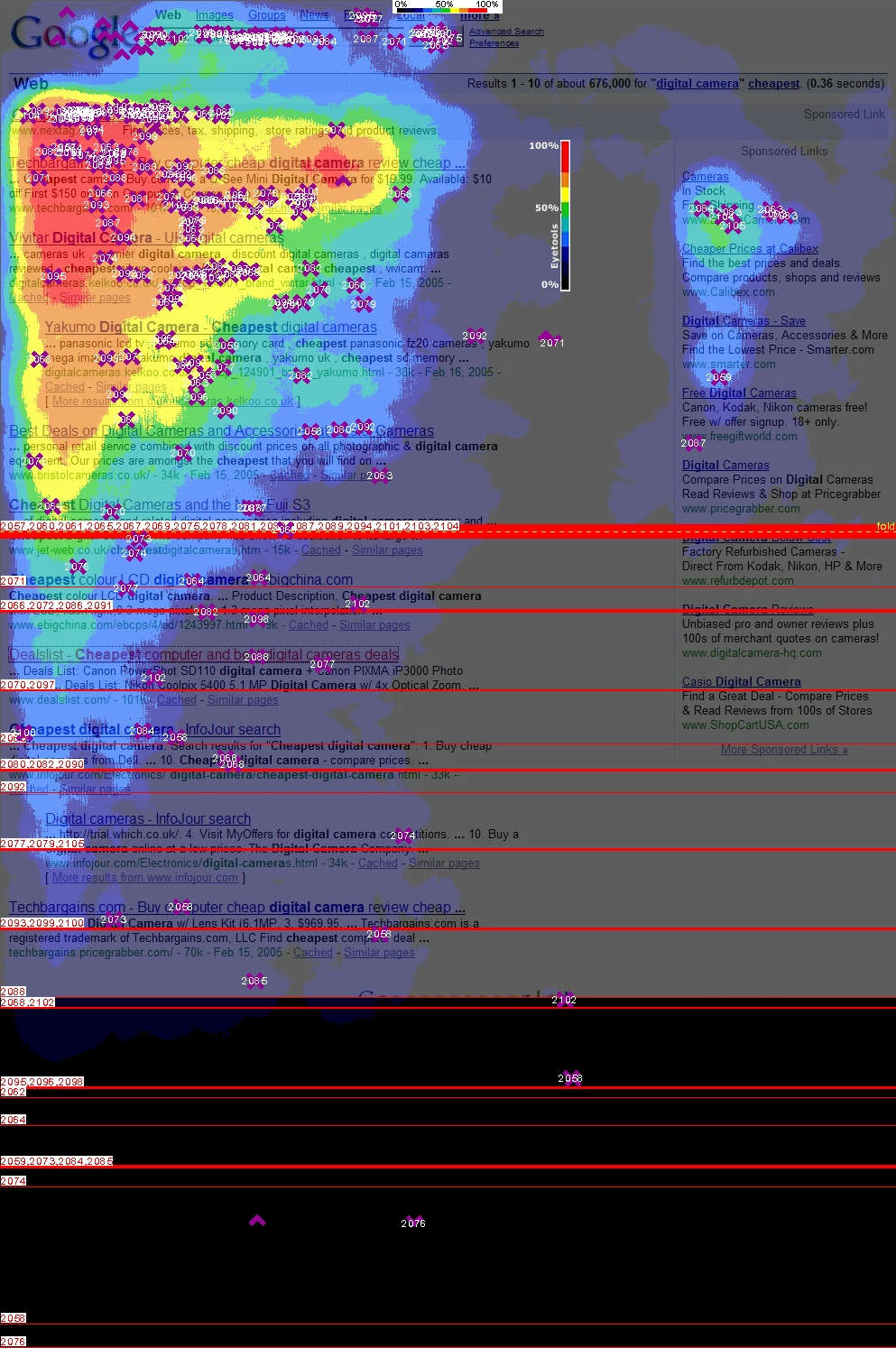Google is a mammoth company, slowly weaving its way into every corner of the Internet by offering free services that are better than the competing for-pay services. The development of these free services is not cheap, especially when Google allegedly requires only 80% of their employees’ attention through their Innovation time off program which encourages each Googler to spend one day a week on projects that interest him or her.
Google makes the vast majority of its money through advertising. Google owns advertising on the Internet, and one of the most prominent advertising services it offers is AdWords.
When you search Google, there are two kinds of results returned. The organic results are those listed on the left while the paid ads, or sponsored links, are listed in a block on the right and sometimes above the organic results on the left.
When test subjects perform searches and their eyes are tracked, the results are pretty clear that the vast majority of the time the subjects look first at the top of the organic results list. These data confirm that it’s much more valuable to have a high organic ranking than to rely on paid ads.
The problem is that you can’t strong-arm your way to ranking high on an organic search, especially if that search is fairly common. A modern-day snake oil industry has built itself around SEO, or search engine optimization, but the fact is that auctioneers seldom have the time to wait for the tweaking and testing involved in a targeted campaign to rank higher for queries relating to items in an auction.
Google AdWords allows you to buy placement of links on Google search results and on websites using Google’s AdSense product which lets site owners display relevant links and get a portion of the proceeds. AdWords customers are charged based solely on how many users click on the ads. Your ad may be displayed thousands of times, but if nobody clicks on it you’re not charged anything.
For customers, AdWords is an auction requiring three pieces of information. You tell it which keyword you want, how much you’re willing to pay for each click, and how much you’re willing to spend per day. AdWords will display the ads with the highest price first until the customer’s per day limit is met, at which point it will no longer display the highest priced ads, displaying instead those of lesser value. You also have the ability to target specific locations, so an ad can run in Kansas and not in Minnesota, for example.
Let’s say you want everyone in North Carolina searching for auction to be shown a link to your website. AdWords displays about eight sponsored listings per search, so you have to outbid all but seven other AdWords customers. With competition from eBay and Overstock.com, two large companies among many with a vested interest in the term auction, a campaign for such a generic term can be quite costly.
Take the keyword phrase combine auction. Because there are fewer companies targeting that search phrase, it’s going to be cheaper and easier as an advertiser to put that link in front of people searching for that phrase. The downside is that there are many fewer people searching for combine auction rather than auto auction or just auction.
AdWords shines when we try to advertise niche merchandise, and organic returns are more valuable for institutional marketing. It’s far better for a weekly auto auction to work to build a frequently-updated website to rank higher for organic returns for auto auction and to use AdWords to quickly advertise antique or unique automobiles as they come in using AdWords to target those people interested in such vehicles.
We auctioneers have fairly unique needs. We usually have a short time to market specific items. If we had an abundance of time, we could build a website for each item and build the ranking over time. Most times, however, we have a marketing window of a week or two, and AdWords gives us the ability to provide exposure of the specific items we have to specific demographics interested in those items.

